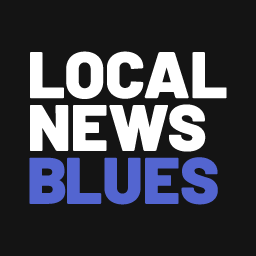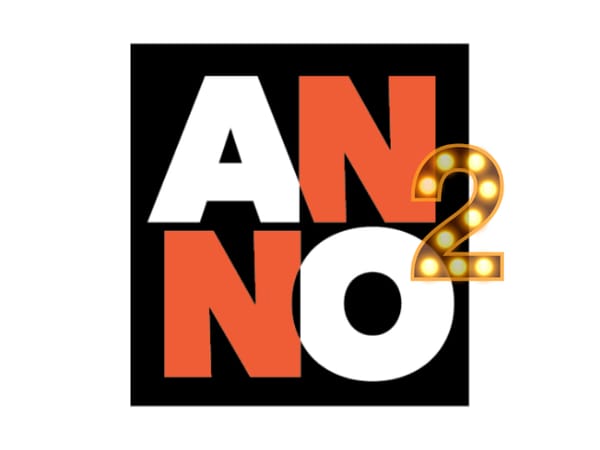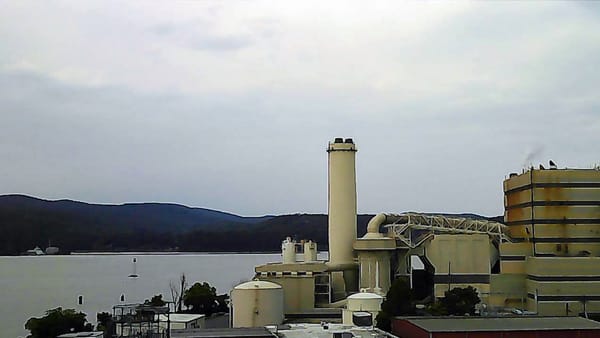Press Forward’s New Director Explains Local Chapters and “Catalyst Funding” Process
Numbers, deets, and a reality check.

By Alice Dreger
Confused about how your local news operation can garner funding via the “Press Forward Local” scene? So were we.
Yesterday we asked for clarification, and Dale Anglin – Press Forward’s just-seated Inaugural Director – got right back to us with answers, including with numbers and details on the current "catalyst funding" system.
A key thing she wants to make sure people understand is that the “catalyst funding” available now is meant to support local chapters of Press Forward, not local newsrooms per se. The aim is to use those funds to set up systems for local news support that are broad, healthy, and sustainable.
Let’s start with a little background:
As we’ve covered previously in Local News Blues, Press Forward is looking to engage philanthropic partners nationwide to supercharge its initial commitment of $500 million of funding to support local news in America. The plan includes the creation of “Press Forward Locals” all around the country, hubs that will raise and channel local funds to local journalism while getting some boosts from the mothership that is the national Press Forward campaign.
John Palfrey, President of the MacArthur Foundation (a lead player in the initiative), told us last month this expansion into local chapters has to be “well structured,” because it’s simply not possible to fund all that the Press Forward national team would like to.
One of Anglin’s first tasks has been to do just that: structure the system for the local chapters.
The basic idea that has emerged is that people motivated to save or revive local journalism in a given area will come together to identify themselves as a potential Press Forward Local chapter.
“These chapters are led by funders or funder collaboratives,” Anglin explained in a follow-up, “so as not to favor one newsroom over another. In many instances funders are in conversations with newsrooms to understand problems and needs.”
Once a group is organized, then they can apply to be recognized as a Press Forward Local chapter by the national group. If they are so recognized, then they can start applying for funding from the national pot of funds.
Anglin explained that “applications to become a local chapter are accepted on a rolling basis and reviewed regularly. We are happy to have a conversation with local funders you may be in contact with. Chapters do not have to have raised any money to get approval.”
Note that she boldfaced that last line. So, step one is to organize leaders in a community. Step two is to seek to be formally recognized as a Press Forward Local Chapter.
Then comes step three – the attempt to receive “catalyst funding” for the local chapter from the national Press Forward pot. To do that, your Press Forward Local will need to show that they’ve “raised or received pledges of at least $25,000.”
How much money is available to local chapters through the catalyst grants?
- A city or county chapter is eligible for up to $100,000, a sum to be dispersed over two years ($50,000 per year).
- A regional chapter is eligible for up to $175,000, dispersed over two years.
- A statewide chapter is eligible for up to $250,000, dispersed over two years.
Catalyst funds are intended to be unrestricted and used by the local chapters: “Catalyst funds are general operating [support for the chapter] and can be used for any number of purposes,” but are not intended to support newsrooms directly.
The use of the funds is up to the local chapters to decide.
“For example,” Anglin explained in a follow-up, “one of the chapters’ roles is to research and identify the local news ecosystem to understand all who might need support. You could use catalyst funds to support this research.”
To be clear, the local chapters will decide how to spend the catalyst funding. (All the more reason for you to be at the table of your Press Forward Local, to make sure the maximum number of dollars intended to support news production are going to news production.)
In dealing with this process, Anglin and her colleagues understand that not every region is the same. California is not the equivalent of Rhode Island.
“We understand that in some states there will be multiple local chapters, as statewide is not feasible,” she said. “We are developing a process for those states that we will share shortly.”
The funds are not infinite. The pool available for national catalyst funds is currently about $13 million, and Anglin says it will most likely support a mixture of statewide and city/county chapters.
She notes that, in theory, the current dollars available could support up to 50 statewide grants over two years, or up to 130 city/county chapters. In reality, she envisions a mix; some states will just have city/county chapters and some will decide to just do a statewide chapter.
So, if you want your community to tap into this, get moving, because the funds are pretty limited as of now.
That said, like Palfrey, Anglin foresees growth down the line.
“As we see momentum,” she said, “we fully expect our funders will increase the pool for catalyst funds.”
Asked if any catalyst funds have already been committed, Anglin said they have not.
“We just received our first application last week. We are proactively reaching out to the first 17 approved local chapters to help them complete their applications.”
Those 17 approved chapters are: Colorado, Mississippi, New Jersey, New Mexico, North Carolina, Wyoming, Alaska, Minnesota, and South Florida, plus the cities of Pittsburgh, Philadelphia, and Lancaster, Pa., Lexington, Ky., San Antonio, Wichita, Springfield, Ill, and Chicago.
By the way, Chicago – home of the MacArthur Foundation – is not waiting for Press Forward national catalyst funds to get moving on grants to newsrooms. Chicago’s Press Forward Local already has an RFP out with an application deadline of March 25 – next Monday. Other locals could take the same approach.
Following up on a question from ANNO (the Alliance of Nonprofit News Outlets), I asked Anglin if “local” has to mean geographical. Could a “local” chapter be formed by a group that is dedicated to delivering geographically-local news but made up of a geographically-dispersed team?
“As of now,” Anglin responded, “local has meant geographical. However, please know that our Press Forward team is learning and iterating in real time. As we see new patterns or issues, we work to adjust.”
But for now anyway, whether you can ultimately get funding via the Press Forward Local system will depend in part on where you are in America and what your local resources look like.
Also note that the catalyst grants represent only a small portion of the $500 million or more ultimately given out by the national team. The $13 million committed for catalyst grants amounts to just 2.6% of $500 million. Most of the money being distributed through Press Forward is being directed to other uses.
“Thus far,” Anglin said, “the bulk of the $500 million is in the form of aligned funding – that is coalition funders supporting Press Forward pillars – locals, equity, infrastructure and policy – through their own independent grantmaking processes.”
Press Forward will keep going with the “aligned funding,” which means you can expect the national Press Forward collaboration to continue giving out other grants to umbrella organizations like INN, tech initiatives, national support groups like Lawyers for Reporters, and favored individual news organizations, as MacArthur did with its first $48 million of the Press Forward initiative.
“After these local catalyst funds,” Anglin said, “expect to see in about two months the next opportunity for funding in the form of a request for proposals targeting at least one of the four pillars.” (Read more about the four pillars – previously called “areas of focus” – here.)
Bottom line: There are a lot of players looking for money, and a lot of them are better organized and better connected than scrappy local news operations are. But if you act now…you might see your operation receive Press Forward funding down the line.
Read more about how to establish a Press Forward Local chapter here.
Alice Dreger is a journalist, historian, and the publisher of Local News Blues. She founded East Lansing Info, a nonprofit digital investigative news service, and ran the operation for about ten years. Read more at the Local News Blues contributors page.





